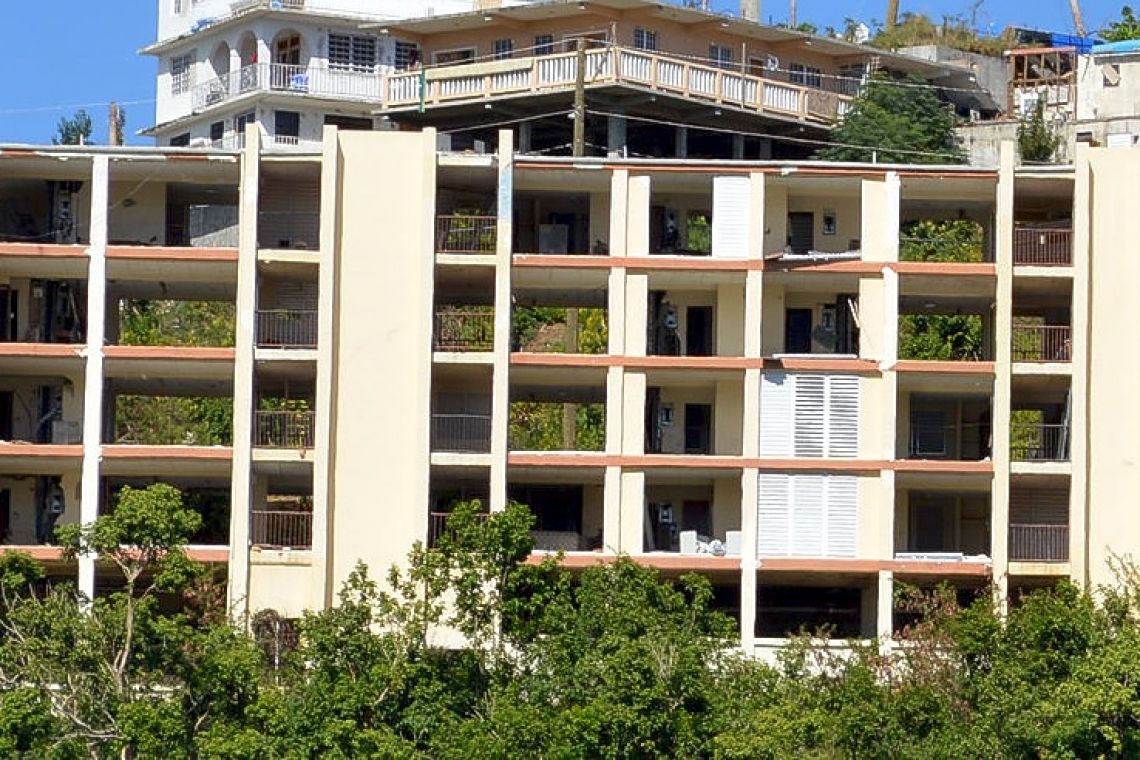UNICEF: Hurricanes are scattering Caribbean families
From The Daily Herald St Maarten

CHARLOTTE-AMALIE, St. Thomas–More than three million Caribbean people suffered the permanent or temporary loss of their homes because of adverse weather events in recent years, and the numbers appear to be escalating dramatically.
That is according to a UNICEF (United Nations Children’s Fund) report, which focuses on the impact of natural disasters attributed in large part to climate change and which zeroes in particularly on how children are affected.
The report, “Children Uprooted in the Caribbean: How stronger hurricanes linked to a changing climate are driving child displacement,” says that an estimated 3.4 million people, including 761,000 children, were displaced during the five-year period between 2014 and 2018.
That is six times higher than the numbers for the previous five years, 2009-2013, when 600,000 Caribbean people were displaced, including 175,000 children.
The totals are estimates, but the authors maintain they are a sign of the worsening changes, caused by global warming, and a dire warning of what’s to come in the near future.
Unsurprisingly, the high numbers in the more recent years were caused primarily by tropical storms and hurricanes that hit portions of the Caribbean basin during 2016 to 2018. During that time, the region was raked by four Category 5 and two Category 4 hurricanes. Included among them, of course, were the 2017 hurricanes Irma and Maria which wreaked havoc in the Virgin Islands.
The UNICEF report includes the U.S. Virgin Islands in its list of places impacted in 2017, along with Anguilla, Antigua, Barbuda, the British Virgin Islands, Cuba, Dominica, Guadeloupe, Puerto Rico, St. Kitts and Nevis, St. Martin, St. Maarten and the Turks and Caicos.
Collectively, it says, those islands suffered the displacement of 400,000 children. There is no breakdown by island.
However, other information sources suggest the territory contributed heavily to the total.
About 85 per cent of V.I. households reported structural damage from Irma and/or Maria, and 90 to 95 per cent of residents were left without electricity or access to phone or internet, according to a 200-page report prepared by the University of the Virgin Islands’ Caribbean Exploratory Research Center and published in February 2019 as “Community Needs Assessment: Understanding the Needs of Vulnerable Children and Families in the U.S. Virgin Islands Post Hurricanes Irma and Maria.”
Some homes were so badly damaged they were uninhabitable, and their occupants had to vacate immediately after the storms. Poor living conditions in others, coupled with a badly damaged public infrastructure, spurred many more residents to relocate. Exact totals are elusive, but numbers provided by the V.I. Education Department give a pretty good idea of the scope of displacement in the territory.
Public school enrolment dropped by 20 per cent in the wake of the storms, according to the UVI report. By December 2017 it stood at 10,868. At the start of the next school year, it was slightly lower, 10,720.
Children who are displaced – be it by natural disaster, war, economic calamity or any other reason – are at increased risk of violence, exploitation and trafficking, the UNICEF report says. They are also easier prey for some diseases such as measles and respiratory infections which thrive in crowded places like shelters.
“As those who have contributed the least to climate change and yet will suffer its effects the most and for the longest, children should receive the strongest protections from its effects,” the report states.
For that reason, it adds, children should be “at the heart” of response plans and coping strategies.
The report cites various reasons to accept the generally held belief that climate change effects will become increasingly problematic. A 2018 study, examining storms between 1986 and 2015, concluded hurricanes are intensifying in strength more rapidly; hurricanes are also causing more flooding than before, as exemplified by Maria dumping more rain on Puerto Rico than any other storm since 1956; Hurricane Dorian in 2019 was the strongest ever to hit the Bahamas in recorded history and it rendered one island, Abaco, “uninhabitable;.”
A study by the National Center for Atmospheric Research shows that, since 1975, the proportion of Category 4 and Category 5 hurricanes has increased between 25 per cent and 30 per cent per degree of global warming.
For more on this story go to; https://www.thedailyherald.sx/regional/unicef-hurricanes-are-scattering-caribbean-families





